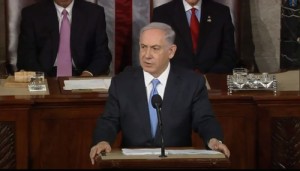By Dorothea Shefer-Vanson

MEVASSERET ZION, Israel — About three years ago my husband and I rescheduled our flight back to Israel from London, at considerable financial and personal cost, because Prime Minister Benjamin Netanyahu had called a snap general election. We were determined to cast our votes in order to get rid of the party in power and especially the man at its head.
That election was won by Netanyahu and his party, despite all our efforts. But the coalition government he cobbled together did not last long, and so for the past three years Israel has had to go through another three general elections, in all of which we voted for rival parties and all of them resulting in political deadlock.
The cost to the country in political, financial, and social terms has led to a downturn in general morale as well as in its international standing. During that period Israel has managed to weather the storm of the COVID-19 pandemic and the attack on its population by rockets fired from Gaza, but the government’s ministries have been unable to take any positive action or initiate fresh policies because of the political stalemate and the inability (whether genuine or deliberate) to approve the budget.
Political gridlock is almost inherent in the nature of Israel’s electoral system, in which parties are elected on the basis of proportional representation rather than regional constituencies, thus making coalitions almost inevitable. This was the system that was used to elect delegates to pre-state Israel’s representative bodies, and so, although palpably unmanageable and inefficient, no government, once in power, has ever felt inclined to change it.

Thus, anyone who feels they have a cause worth fighting for sets up a party and tries to garner support. It was hoped that the introduction of a minimum threshold would improve the situation, but that does not appear to have been the case. Political parties have split and splintered. Personalities have sought to express themselves and their views. Ideas, interests and ideologies have emerged or become more entrenched than before. As the results of the latest (fourth) election show, the situation has remained much as it was.
But something has changed now, nonetheless. Yair Lapid, the leader of one of the parties that opposes Netanyahu and advocates more liberal, centrist ideas, has managed to bring together a disparate — and ostensibly impractical — collection of right, left, center, and even Arab parties to form a coalition. As I write this it looks as if that two-headed coalition government known as “Bennett-Lapid” will in fact be ratified by the Knesset and sworn in on Sunday, June 13.
This certainly gives rise to optimism among those who have had enough of Netanyahu and his minions, and feel that he has run the country for far too long — 12 consecutive years at the last count. He has certainly chalked up several achievements, but no democracy should be expected to put up with the same leader — no matter how gifted — for so long.
The new government, if allowed to come to fruition, comprises both new and old faces, some who have been in previous governments and some who have not. The fact that so many politicians adhering to such differing views have been able to come together in order to achieve the objective of finally replacing the government and providing Israel with a leadership that is focused on new ideas and the good of the country as a whole, rather than being based primarily on the cult of personality, is certainly a cause for cautious optimism.
Dorothea Shefer-Vanson is an author and freelance writer based in the Jerusalem suburb of Mevasseret Zion, Israel. She may be contacted via dorothea.shefer@sdjewishworld.com